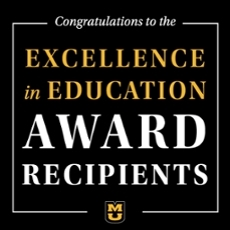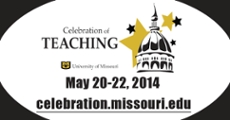At the General Faculty meeting April 23, MU’s top executive directly addressed Faculty Council’s concerns.
Council members in recent months have questioned the University of Missouri System’s strategic planning process that includes 2 percent funding reallocations beginning in fiscal 2015 and the metrics used for select mid-year faculty raises — both strategies for bettering MU’s standing in the Association of American Universities (AAU).
Also brought up: the ongoing bee under the bonnet — shared governance, the phrase for faculty wanting a say in administrative decisions.
During the nearly two-hour meeting in Jesse Wrench Auditorium, Chancellor R. Bowen Loftin responded, at times at length, until questions were exhausted. Loftin also turned the tables, challenging Faculty Council and the rest of those gathered to think about what the institution should be in 50 years’ time.
He asked why MU models itself after other institutions rather than being the model. “Why can’t we be the aspirational land grant [university]?” Loftin said.
Faculty Council Chair Craig Roberts started the meeting by summarizing current campus issues. Council members Tim Evans, of the Student Affairs committee, and Rebecca Johnson, of the Diversity Enhancement committee, are preparing reports related to alcohol abuse, sexual assault reporting and mental health programs on campus, Roberts said. Also, most of the 600,000 books damaged by mold at Subtera Underground Warehousing last year will be restored. Faculty will have final say on which books should be taken off the destroy list, he said.
Meanwhile, council is concerned that the four AAU metrics used to determine midterm faculty raises, announced this semester, do not encompass the breadth of MU curricula.
A large portion of the 217 midterm raises went to faculty involved in research rather than those who teach or work for MU Extension, Roberts said. Moreover, the generous raises, some by as much as $15,000 a year, are hard to swallow after 10 years of nominal or no faculty raises. “This did not go over well with faculty,” Roberts said.
Over the next four years, MU is reallocating funds to help pay for the hiring of faculty who will improve MU’s AAU ranking, teaching and research. But Roberts viewed the reallocations as harming many disciplines. “We could lose the breadth of programs we have,” he said.
During the Q-and-A, Loftin said it is somewhat true that AAU metrics are slanted toward STEMM (science, technology, engineering, mathematics, medicine). But when he examined who was receiving midterm raises, he found no bias toward STEMM. Professors in the arts, humanities and other disciplines were represented, Loftin said.
A non-STEMM professor “might feel like your contribution is not recognized, but all of you make an impact,” Loftin said. “We cannot stop being a comprehensive university.”
Even so, Loftin said faculty and staff need to understand that there will be funding “priorities” because of state cuts to higher education.
Loftin went on to explain that AAU membership has benefits, such as giving the university “a seat at the table” on national education policies. He said donors view AAU membership as important.
Much of the Q-and-A was dominated by engineering professors asking Loftin how he might handle the ongoing shared governance controversy involving the Nuclear Science and Engineering Institute and the Nuclear Engineering Program.
Loftin responded broadly on the issue, saying he would make sure that “structures” were “in place that respect faculty input.”
CORRECTION: In an earlier version of this story it was incorrectly reported that a concern of Faculty Council Chair Craig Roberts was that midterm faculty raises were given disproportionately to STEMM faculty. Actually, Roberts’ concern is that the midterm raises, in his view, were based almost entirely on the four metrics of the Association of American Universities, which favor research over teaching and MU Extension work.


